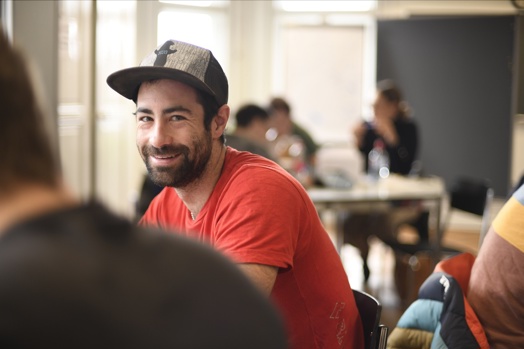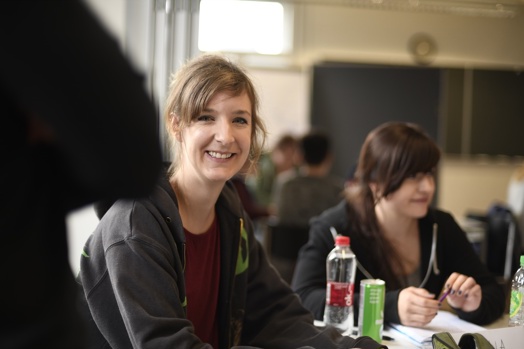
My name is Christoph Urech and I am Head of the Continuing Education Department at BFF - Kompetenz Bildung Bern. In this role, I am also responsible for the vocational trainer courses and teach the subject area of psychology for prospective vocational trainers.
I am originally a sports and biology teacher (upper secondary level), was a trainer of young people for 10 years and worked as an expert at Jugend und Sport in the training of trainers. In addition to sports and biology, I also studied psychology and graduated with an M Sc degree. I have also been teaching on the vocational training course at the BFF Bern for 10 years. In connection with my role as head of department, I have completed various management training courses, including an MAS in education management.

Our vocational trainer courses are suitable for all (future) vocational trainers who train apprentices at upper secondary level (EFZ and EBA). Based on the Vocational Training Act (BBG) and the Vocational Training Ordinance (BGV), the vocational training offices of the cantons grant companies/training companies permission to train apprentices. One of the requirements is that trainers must have completed a minimum 5-day vocational trainer course (40 course hours) in accordance with the SERI framework curriculum of 01.02.2011 and the SBBK curriculum of 04.08.2016. This is completed with a cantonally recognized course certificate as a vocational trainer, which is valid throughout Switzerland. This ensures the quality of in-company training.
The following educational objectives are covered by the vocational trainer course, including the course certificate:
The training objectives are further broken down into required competencies and dealt with in the course for vocational trainers.
Our vocational trainer courses are generally sector-neutral. This means that people from all professions take part in our courses to become vocational trainers. Feedback from participants about the vocational trainer course clearly shows that the vast majority appreciate this fact. The exchange beyond one's own sector in a vocational trainer course is seen as an enrichment. After all, the challenges involved in supporting apprentices are the same across all professional fields. As a result, discussions about training and less subject-specific discussions arise in the further training courses, which are also valuable but only marginally related to the training task.
In addition, we offer a longer course (10 instead of 5 days) for (future) vocational trainers in the field of child and disabled/impaired care assistants. This course takes place twice a year and also entitles you to a cantonally recognized course certificate (see above), but deals in more detail with the requirements of this special target group, especially in view of the new education regulations for training as a care specialist, which will come into force in August 2021.

Regardless of the sector, companies are certainly confronted with the challenge of digitalization in connection with the training of apprentices. However, the increasing demands placed on apprentices and training companies in terms of training quality is also an important point here.
We use subject-specific specialists in our vocational training course. For the legal foundations, these are employees of the vocational training offices who are responsible for the training courses or lawyers with a connection to employment law. Psychologists teach psychology-related topics. For the methodological and didactic fields, adult educators who have also completed an apprenticeship themselves teach on the vocational training course.

Ultimately, the aim of the vocational trainer course is to prepare vocational trainers as well as possible for their work in supporting in-company training. The demands on vocational trainers are very high, as they accompany learners over a longer period of time. This is often during phases in which the learners are undergoing significant development. Vocational trainers are an important anchor here. This is because apprentices are prepared for the world of work during their apprenticeship so that they can perform their work in the best possible way for society and with pleasure.
The methods and tools passed on to vocational trainers in the vocational trainer course are diverse:

The day-to-day work of vocational trainers often does not allow them to devote as much time to training apprentices as they would like. Thorough in-company training requires resources. We also address this in our vocational trainer course. However, it is worth investing in the apprentices. The world of work will continue to rely on well-trained staff in the future. Moreover, towards the end of their training, apprentices are often on a par with trained employees in terms of their skills; apprentices work for an apprentice's wage, but achieve significantly more. So it pays off several times over for a company when it trains apprentices.
In the vocational trainer course, we give our vocational trainers the following tips for dealing with challenges:

The continuing education courses offered by the BFF Bern always have a high practical relevance. This is also the case with the vocational trainer course. The focus here is on expanding the participants' skills. The training courses for vocational trainers incorporate both current research findings and best practice examples from the field. Great importance is also attached to the exchange between participants in the vocational trainer course. With our training courses, you can further develop your potential, online or on site.
Overview of schools for vocational trainers (vocational trainer course)